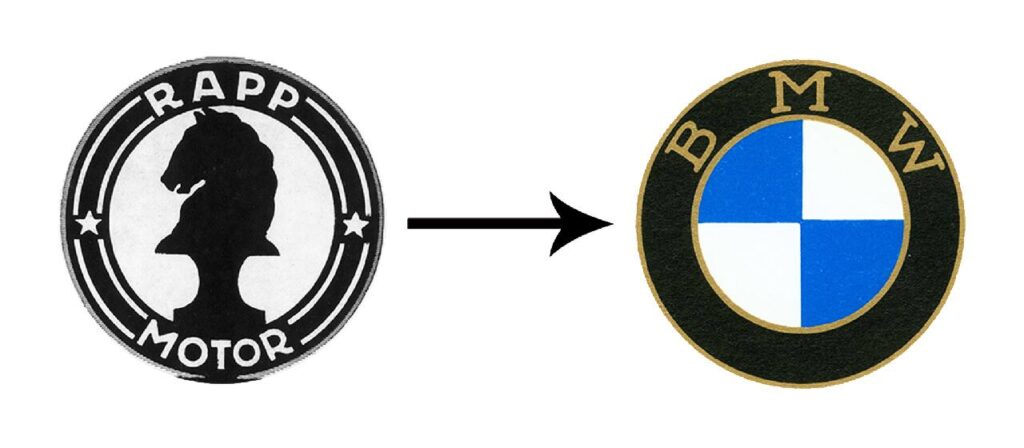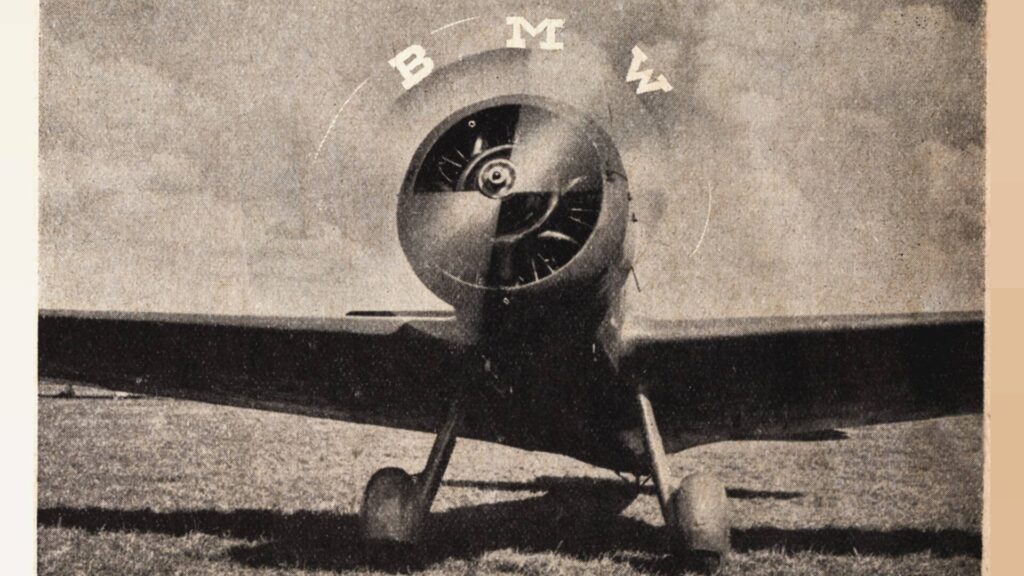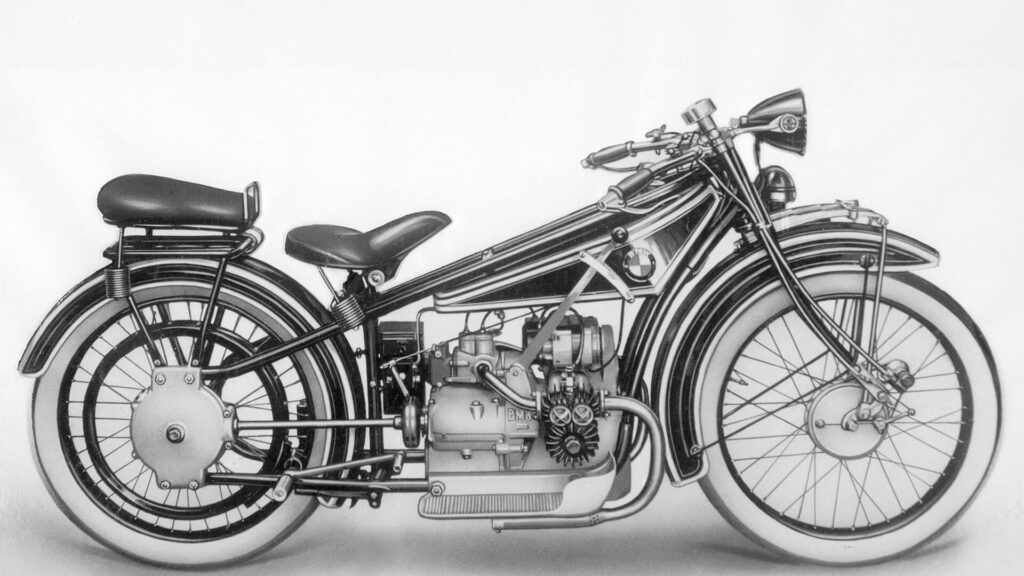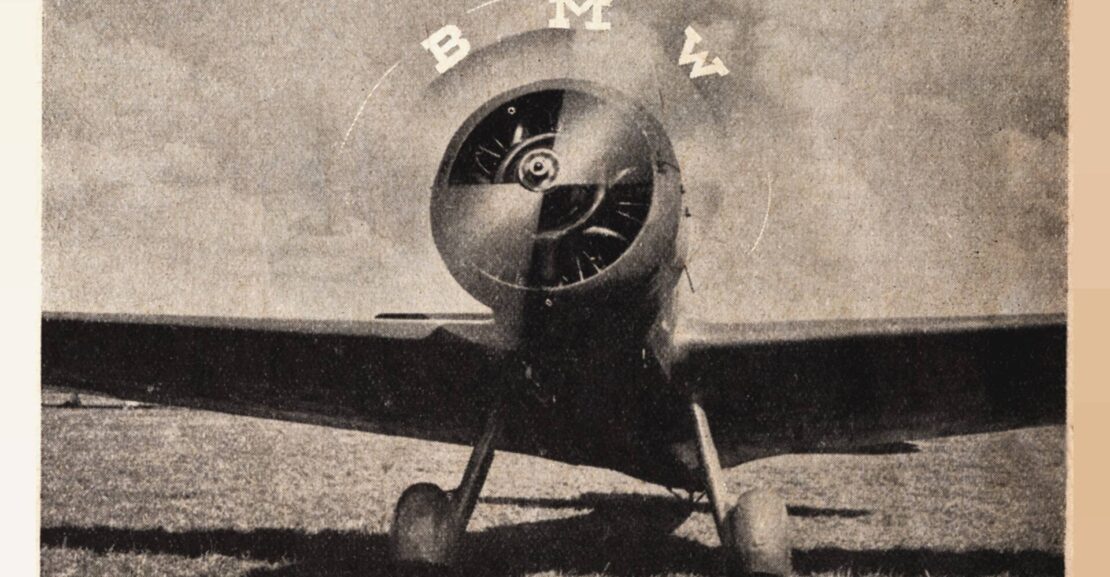Is it a propeller or not? BMW’s iconic logo has been a hot discussion topic for decades. And all because of a publicity stunt.
“Many people believe the BMW logo is a stylized propeller,” says Fred Jakobs of BMW Group Classic. “But the truth is a little different.”
So, what does the BMW logo mean? And what does the BMW badge represent?
There was no need for a BMW symbol at first
The history of the name BMW – the Bayerische Motoren Werke or Bavarian Motor Works – dates back to 1917. BMW emerged from a renaming of the aircraft engine manufacturer Rapp Motorenwerke, located in Munich, the capital of the State of Bavaria in southern Germany. Although the company name changed, the technical equipment, assets and workforce initially remained the same.
When the name BMW was first included in the commercial register in July 1917, there was no company logo. Similarly, the first ad from the same month also lacked any BMW symbol or emblem. What it did feature alongside aircraft engines, however, was its future planned product range: Engines for automobiles, agriculture and boats.
“In the early days, the logo and its meaning were by no means as present to a broad public as they are today, as BMW had no end customers to solicit,” explains Fred Jakobs. The main business was the production and maintenance of aircraft engines for the German Air Force.

The BMW Logo features inverse Bavarian colors
The company’s home state of Bavaria was also to be represented on the company logo. The quarters of the inner circle on the BMW badge display the state colors of the State of Bavaria – white and blue. But they are in the inverse order (at least as far as heraldic rules are concerned, where you read clockwise from the top left). The reason for this inverse order of blue and white in the BMW logo was the local trademark law at the time, which forbade the use of state coats of arms or other symbols of sovereignty on commercial logos.

What does the BMW logo mean?
The first key to the meaning of the BMW logo are its colors: white and blue are the colors of the State of Bavaria in Germany, home of BMW. A 1929 BMW ad depicts the BMW emblem, complete with the four colored quadrants, in a spinning airplane propeller. The interpretation that the BMW logo represents a propeller has endured ever since.
So where does the propeller myth about the BMW logo come from?
Even today, many people still believe that the BMW logo depicts a rotating propeller. How come?
The myth of the BMW propeller came about years after the first company logo. A BMW ad from 1929 showed an airplane with the BMW logo in the rotating propeller. At the beginning of the global economic crisis, the ad was trying to promote a new aircraft engine that BMW was building under license from Pratt & Whitney. The propeller interpretation fit very well into the advertising image of the young company, as it underlined the company’s roots and its expertise in aircraft construction.

Then, in 1942, BMW itself linked the propeller to its company symbol. An article appeared in a BMW publication called “Flugmotoren-Nachrichten” (Aircraft Engine News) which backed up the story of the BMW badge as a spinning propeller. The story was illustrated with a photo of the BMW logo overlaid on a rotating propeller.

The BMW logo: meaning and history?
So the story of the BMW logo is based on a legend – a legend that still lives on today. “For a long time, BMW made little effort to correct the myth that the BMW badge is a propeller,” explains Fred Jakobs of BMW Group Classic.
So according to the expert, sticking to the story that the BMW emblem is a propeller would not be entirely wrong. It’s not strictly true that there is a propeller in BMW’s company logo, though. Constant repetition has made this explanation a self-propagating urban myth.
“This interpretation has been commonplace for 90 years, so in the meantime it has acquired a certain justification,” Jakobs explains.

THE NEW LOGO FOR THE BMW BRAND COMMUNICATION
The new logo is more than just a design update: The layout of BMW’s new brand look and feel stands for the mobility of the future.
To what extent is the change within the brand reflected in the new logo?
“BMW becomes a relationship brand. The new communication logo radiates openness and clarity,” explains Jens Thiemer, Senior Vice President Customer & Brand BMW. “With this new transparent variant, we want to invite our customers more than ever to become part of the BMW world. In addition, our new brand design is geared to the challenges and opportunities of Digitization for brands. With visual restraint and graphic We are equipping ourselves flexibly for the wide variety of contact points in communication at which BMW will show its presence online and offline in the future. The additional communication logo symbolizes the significance and relevance of the brand for mobility and driving pleasure in the future.”
This is how the BMW logo changed over the years


